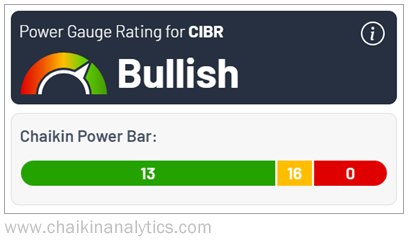Just four weeks ago, no one had a problem getting their meds…
That all changed around February 21. Reports started coming in across the country…
Insurance denied.
To get your medicine quickly, you need to show the pharmacy your prescription and proof of insurance. But what if you have both – and something out of your control happens?
Pharmacist Amrish Patel of Dougherty’s Pharmacy in Dallas saw that happen time and again in recent weeks. As Patel told CBS News a week after the trouble started…
We’ve seen a lot of claims coming through as a rejected claim…
Elderly patients who have a fixed income and they’re trying to get their medicine. You know, unfortunately, there’s no way around it at this point.
This problem isn’t isolated to pharmacies, either. It’s engulfing the health care system…
The New York Times reported that a primary-care doctor in Pennsylvania is dipping into her personal stash of cash to make ends meet. An urgent-care chain in Ohio might skip its rent bill to pay its workers. And in Florida, a cancer center couldn’t get chemotherapy drugs.
It’s hard to overstate how horribly wrong everything went almost overnight. In short…
America’s largest health care payment processor got hacked.
That’s right, folks…
Hackers from a group known as “Blackcat” gained access to Change Healthcare’s systems. Change Healthcare is the technology unit for health-insurance giant UnitedHealth (UNH).
In the following weeks, we’ve learned just how fragile our payment-processing systems are. Most of the U.S. health care system is still recovering after this “ransomware attack.”
A ransomware attack is when hackers infiltrate a supposedly secure system. They encrypt or lock the files so the victim can’t get access. Then, they demand a ransom payment.
If the victim pays, they’ll get their files back. If not, the data gets destroyed.
A ransomware attack is a form of modern terrorism. And as you might recall, President Richard Nixon declared in March 1973 that the U.S. wouldn’t negotiate with terrorists…
Back then, the Palestinian militant organization Black September attacked the Saudi Embassy in Sudan. Then, the group of militants took several hostages.
But Nixon didn’t give in to their demands.
Nixon’s strong rhetorical response became a cornerstone of American foreign policy. Five decades later, the U.S. still doesn’t negotiate with terrorists.
But it turns out that private companies do.
You’d think that America’s largest health care payment processor would already have a strong defense in place. You’d think that it wouldn’t need to make a ransom payment.
And yet, here we are…
On March 1, UnitedHealth paid roughly $22 million in bitcoin to regain access to its data.
That’s what likely happened, at least…
UnitedHealth won’t confirm that it made the hefty ransom payment to the Blackcat group. Instead, the company simply said it’s “focused on the investigation and the recovery.”
I’ll spare you the details about cryptocurrencies and the blockchain. But essentially, the payment is public record. So we know that someone sent 350 bitcoin to the terrorists.
Some of the alleged hackers are now complaining online that they got cut out of the ransom payment. Who would’ve guessed that terrorists aren’t loyal to one another?
Regardless, it’s now up to UnitedHealth to clean up the mess and secure its systems…
We can’t know for sure which vendor UnitedHealth will use to patch its holes. But this expensive, ongoing saga will likely lead to enhanced cybersecurity efforts across the board.
And the Power Gauge sees what this means for stocks in this corner of the market…
As its name implies, the First Trust NASDAQ Cybersecurity Fund (CIBR) holds a basket of stocks in the cybersecurity space.
Right now, CIBR earns a “bullish” rating in the Power Gauge. And of its 29 holdings with ratings in our system, not a single one is currently “bearish.” Take a look at this screenshot from the Power Gauge…
Folks, if you’re not watching this segment of the market now… I recommend you start paying attention.
As the UnitedHealth hack shows us, the importance of cybersecurity is only growing.
Good investing,
Pete Carmasino
